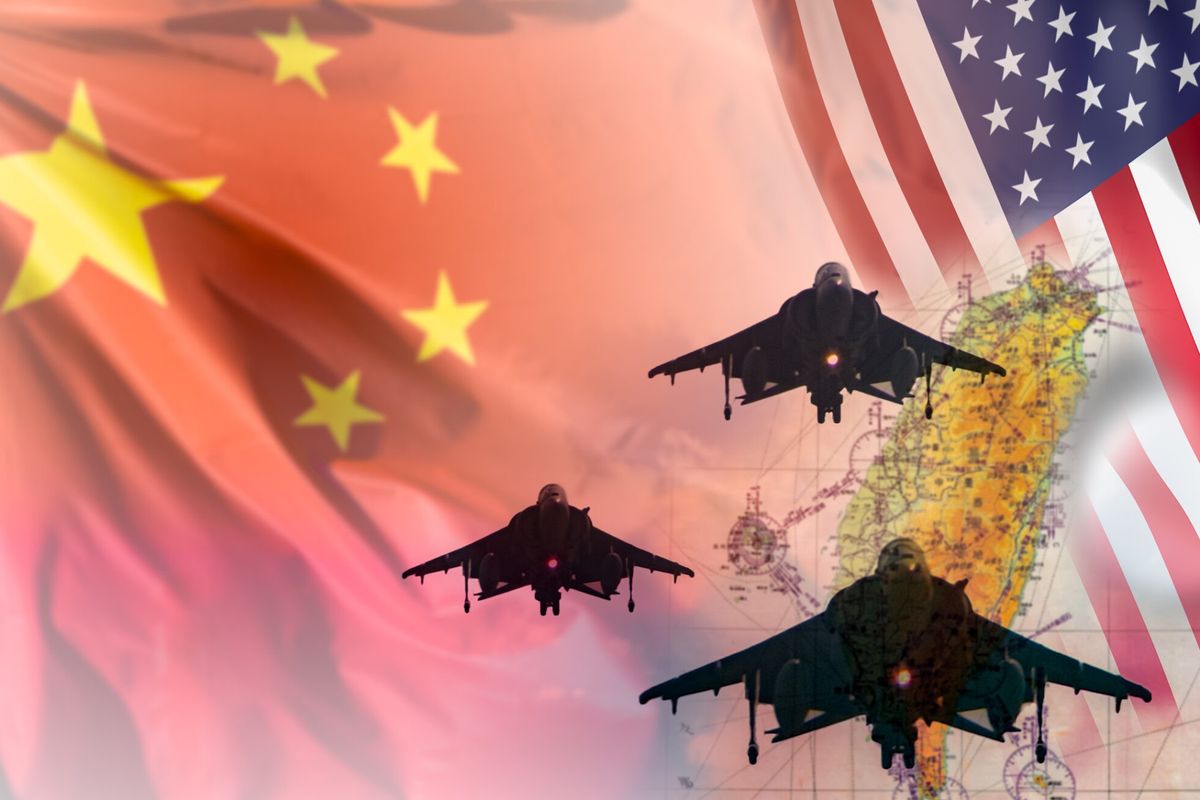Since taking office in January, President Donald Trump has backed up the protectionist – and even isolationist – rhetoric of his campaign with concrete action. In a flurry of activity, the president has confirmed his intent not to pursue ratification of the Trans-Pacific Partnership (TPP) trade treaty, signed two executive orders trying to ban immigration from certain Muslim-majority countries, and repeatedly threatened to renegotiate or even cancel the North American Free Trade Agreement (NAFTA), amongst other initiatives. Now, this apparent retreat from free trade and global leadership may be provoking an international realignment, as global powers like China rush to take advantage of the strategic and economic vacuum, which a more isolationist American might leave behind. The Cipher Brief’s Fritz Lodge spoke with Gary Hufbauer, Senior Fellow at the Peterson Institute for International Economics, about some of the ways that other countries might take up the mantle of free trade and globalism.
The Cipher Brief: Are we seeing a convergence of interests and strategic alignment forming between new leaders of free trade and globalism, in opposition to some of the protectionist – or even isolationist – impulses that we have seen in countries like the UK after Brexit and here in the United States?
Gary Hufbauer: There is clearly of convergence of rhetorical interest. We do have the European Union reaching out to Japan, and vice-versa, for a free trade agreement, which would be a very big development. I was at a conference in Jakarta a few weeks ago, and Asian officials and trade ministers who I spoke with there were very bullish on going forward with the Regional Comprehensive Economic Partnership (RCEP), which the U.S. has tended to downplay. In addition, participants at the conference were very interested in deepening various combinations within ASEAN [the Association of Southeast Asian Nations] and the ASEAN-plus countries – like China, Korea, and Japan. Then we have the recent meeting in Chile of the 11 remaining members of the TPP [Trans-Pacific Partnership] without the U.S., which China and Korea both attended. Finally, you have Chinese President Xi Jinping who gave a landmark speech in support of free trade and globalization at the World Economic Forum in Davos this year.
So, there is a lot of ferment going on, a real rhetorical response to the inward-looking policies of the United States under the Trump administration. This is an important backlash, but the real question I have is whether this rhetorical defense of globalization will translate into a future policy of liberalization.
This is a big question, because if you look at the statistics, global trade in goods and services is growing more slowly than GDP (Gross Domestic Product). Whereas, for many decades, trade was growing quite a bit faster than GDP, it was a real engine of economic growth. The one exception here is that trade in digital and data flows is growing very rapidly. This could substitute, to a certain extent, some of the declining growth of trade in goods, but nobody has demonstrated that definitively. And finally, if you look at the Global Trade Alert, it shows that, despite the proclamations of support for free trade that we’re seeing, all these G20 countries are putting up various trade barriers at a fast clip. Given this continued trend towards applying protectionist measure, it’s not clear whether all this favorable rhetoric will actually turn into favorable policies and liberalizations.
The other question is what effect the unfavorable rhetoric from the United States will have. At their meeting this March, the G20 dropped the boilerplate wording in support of free trade from its official communique for the first time in a decade at U.S. urging. This was very noticeable; it was the first time in recent memory where the U.S. was the obstructionist party. Not only was there this vocal obstruction from the Trump administration at the G20, there is also silent obstruction from countries like India and South Africa, which are not keen on liberalizing.
We shall see whether all this turns into higher barriers or whether it will just lead to lost opportunities, such as the failure to ratify the TPP. NAFTA [North American Free Trade Agreement] will be the next test, and then after that the U.S.-Korea free trade agreement. These will give some sense of whether we are going backward or simply refusing to go forward. In this context, you could say that the absence of backward motion will be the most desirable, as opposed to actually putting up new barriers.
TCB: You mentioned Xi Jinping’s speech at Davos, which has been followed by renewed efforts on China’s part to accelerate trade negotiations with the EU, even asking Brussels to move up the annual EU-China summit. Is this one area where we could see this new globalist rhetoric and realignment against protectionist impulses break down some of the barriers that have blocked EU-China negotiations in the past?
GH: In the last two years, my view is that China has gone backwards and become more restrictive, especially in digital commerce, but also in terms of hamstringing foreign firms’ operations in China. I guess the question is whether the EU-China talks will begin to reverse those patterns and lead to a genuine opening in China. This is particularly true for the services area, which the EU and the U.S. have an advantage in.
This could be a major development, and it all depends on how fast Xi wants to move on this file, and whether he thinks it’s in China’s economic interest to open up its economy in this way. I think it is, but he has his own domestic constituents to respond to, which may make things difficult for him.
TCB: Strategically, do you see an effort to begin trying to isolate the United States?
GH: I think the U.S. is doing a good job of isolating itself. As Trump’s statements and executive orders continue to come out, it remains to be seen how bad the bite is, but the bark is pretty loud. The question is whether other countries, particularly China, take advantage of the fact that, at the very least, the U.S. is taking a time out from being the world economic leader. Much depends on whether other countries seize this opportunity, step into this leadership vacuum, and this could happen in all sorts of ways.
The other day, there was an announcement that the U.S. will not support a pilot development program in Latin American run by the Inter-American Development Bank. This is the first time that the U.S. has not supported it. I think this signals that the Trump administration will be pretty stingy towards the World Bank and the IMF [International Monetary Fund]. China or other actors could step into this financial vacuum as well. So you have the trade vacuum, which is clear, and then the financial vacuum, which is emerging.
TCB: And the advantage of stepping into this financial vacuum would be to buy influence at institutions typically dominated by the U.S.?
GH: Yes. It’s hard to change the voting pattern of those institutions, but you can always have auxiliary programs, which are tied onto the institution and in which the contributor, in this case probably China, would have a powerful voice. Then of course you have new parallel institutions like the Asian Infrastructure Investment bank [AIIB] or the New Development Bank [NDB]. But, if other countries want to gain influence in the western institutions, they can do so through these special windows, they just need to put up the money for it.













